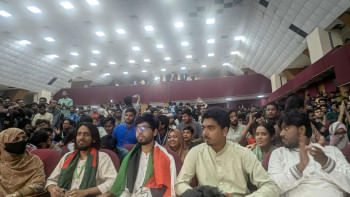Law wide open to abuse
THE Awami League-led government's proposed changes to the Information and Communication Technology Act 2006, which we, along with media and communications experts and practitioners strongly opposed when it was promulgated as a presidential ordinance, has now been given permanent footing in the form of a law passed in parliament two days ago. Among other things, it empowers law enforcers to arrest alleged violaters without a warrant. The new law makes 'hacking' into a computer system a non-bailable offence, punishable with between seven and 14 years' imprisonment, and among the crimes have also been included obscenities and defematory remarks.
The interpretation of such offences is left entirely to the law enforcers. In the previous law permission had to taken before carrying out an arrest and an offence under the law was bailable too. But now the situation has been reversed.
While ICT crimes must be addressed in this day and age where both use and misuse of ICT are widespread, the strictness of the law borders on the draconian. The cases filed under the ICT act in recent months have highlighted the possibility of its being abused to stifle freedom of speech and expression. We express our concern at the passing of this law by a government which may have approved the positive Right to Information Act but which has disappointed in its approach towards the media in particular and freedom of speech and expression generally. We urge the government to consider the valid concerns of experts and the constitutional rights of the people and to rethink the move.

 For all latest news, follow The Daily Star's Google News channel.
For all latest news, follow The Daily Star's Google News channel. 



Comments